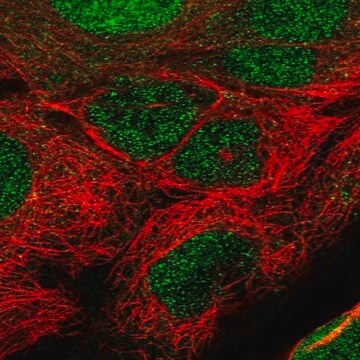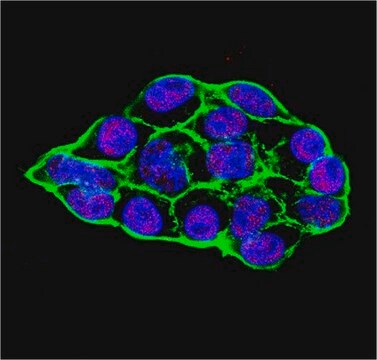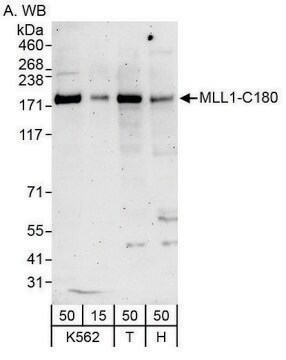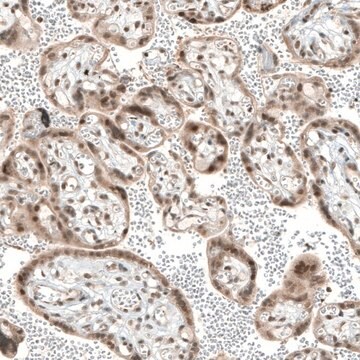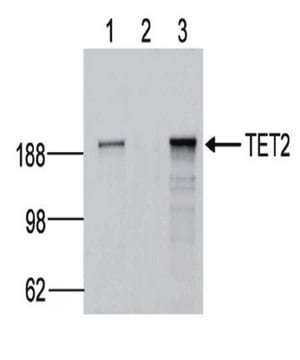SAB2700730
Monoclonal Anti-TET1 antibody produced in mouse
clone GT1462, affinity isolated antibody, buffered aqueous solution
Synonyme(s) :
CXXC6, FLJ10839, FLJ41442, TET1
About This Item
Produits recommandés
Source biologique
mouse
Conjugué
unconjugated
Forme d'anticorps
affinity isolated antibody
Type de produit anticorps
primary antibodies
Clone
GT1462, monoclonal
Forme
buffered aqueous solution
Espèces réactives
human, mouse
Technique(s)
ChIP: suitable
immunofluorescence: suitable
immunohistochemistry: 1:100-1:1000
immunoprecipitation (IP): suitable
western blot: 500-3000
Isotype
IgG2
Numéro d'accès NCBI
Numéro d'accès UniProt
Conditions d'expédition
wet ice
Température de stockage
−20°C
Modification post-traductionnelle de la cible
unmodified
Informations sur le gène
human ... TET1(80312)
Description générale
Application
Actions biochimiques/physiologiques
Caractéristiques et avantages
Forme physique
Stockage et stabilité
Autres remarques
Clause de non-responsabilité
Vous ne trouvez pas le bon produit ?
Essayez notre Outil de sélection de produits.
Mention d'avertissement
Warning
Mentions de danger
Conseils de prudence
Classification des risques
Aquatic Chronic 3 - Skin Sens. 1
Code de la classe de stockage
10 - Combustible liquids
Classe de danger pour l'eau (WGK)
WGK 2
Point d'éclair (°F)
Not applicable
Point d'éclair (°C)
Not applicable
Certificats d'analyse (COA)
Recherchez un Certificats d'analyse (COA) en saisissant le numéro de lot du produit. Les numéros de lot figurent sur l'étiquette du produit après les mots "Lot" ou "Batch".
Déjà en possession de ce produit ?
Retrouvez la documentation relative aux produits que vous avez récemment achetés dans la Bibliothèque de documents.
Notre équipe de scientifiques dispose d'une expérience dans tous les secteurs de la recherche, notamment en sciences de la vie, science des matériaux, synthèse chimique, chromatographie, analyse et dans de nombreux autres domaines..
Contacter notre Service technique